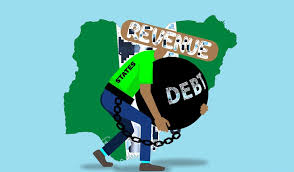
Nigeria’s external debt service obligations rose sharply to $1.08 billion in the fourth quarter of 2024, signaling deepening fiscal pressure on the country’s already strained resources, according to new data from the Debt Management Office (DMO).
This marks a significant increase compared to the previous quarter, highlighting the government’s mounting debt servicing commitments at a time when critical sectors—especially trade and maritime—are in urgent need of infrastructure upgrades and policy support.
According to the DMO, Nigeria’s total debt servicing cost stood at ₦3.57 trillion in Q3 2024, representing a ₦60 billion or 1.71% increase from ₦3.51 trillion recorded in Q2. The rising debt servicing burden has sparked fresh concerns about its implications for national development and investment in key economic enablers such as port infrastructure and trade facilitation.
A breakdown of the external debt payments reveals that multilateral lenders accounted for the bulk of repayments, with $600.71 million—representing 55.7% of the total—going to institutions such as the International Monetary Fund (IMF), which received the largest share of $407.97 million.
Stakeholders within the maritime and trade logistics sectors have begun voicing concerns that the government’s growing focus on debt servicing may lead to reduced capital allocation for port modernization, hinterland connectivity, and blue economy development—areas considered vital to boosting non-oil revenue and enhancing Nigeria’s competitiveness under regional trade frameworks like AfCFTA.
“As more resources are channeled into external debt obligations, there’s a risk of deprioritizing essential maritime investments needed to unlock the full potential of our ports and logistics chain,” said a maritime economist who spoke on condition of anonymity. “This could slow down ongoing reforms and infrastructure upgrades that are necessary for driving export-led growth.”
With over $1 billion going to external creditors in just one quarter, analysts warn that unless urgent steps are taken to boost revenue, especially through non-oil exports and maritime trade, the country may face tougher choices between servicing debt and funding development projects.
As Nigeria seeks to balance its books, attention is now turning to how the government will navigate its rising debt costs while sustaining key investments in the maritime sector that are central to economic diversification and long-term growth.















